Search
Did you mean: Satyr?
Search Results
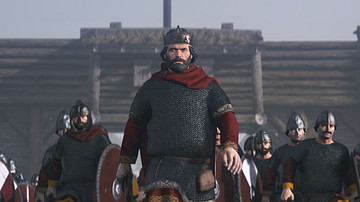
Definition
Alfred the Great
Alfred the Great (r. 871-899) was the king of Wessex in Britain but came to be known as King of the Anglo-Saxons after his military victories over Viking adversaries and later successful negotiations with them. He is the best-known Anglo-Saxon...
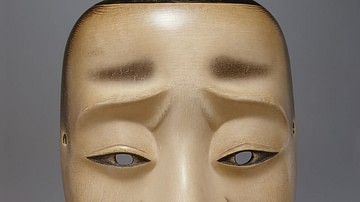
Definition
Noh Theatre
Noh (Nō) theatre is a Japanese performance art which became especially popular from the 14th century CE and which is still performed today. Noh actors, who were always male in the medieval period, famously move and make gestures in a very...
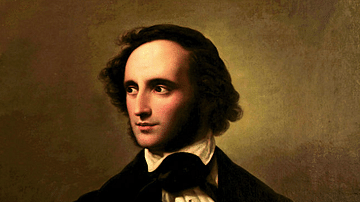
Definition
Felix Mendelssohn
Felix Mendelssohn (1809-1847) was a German composer of Romantic music best known for his symphonies, overtures, concertos, piano pieces, and songs. Amongst his most popular works are his Wedding March from his score for A Midsummer Night's...
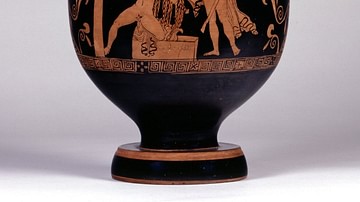
Definition
The Eumenides
The Eumenides is a play written by Aeschylus (c 525 – 455 BCE), the “Father of Greek Tragedy,” the most popular and influential of all tragedians of his era. The Eumenides was the third play of a trilogy, The Oresteia, with the remaining...
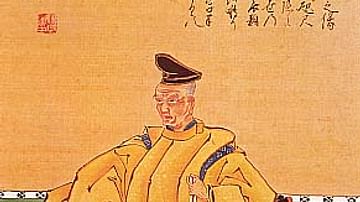
Definition
Chikamatsu Monzaemon
Chikamatsu Monzaemon (1653-1725) was a Japanese playwright who wrote for both the puppet theatre and kabuki. He is regarded as Japan’s greatest dramatist. Apart from their aesthetic appeal, his plays are of value because they provide an insight...

Definition
Demetrius I of Macedon
Demetrius I of Macedon, also known as Demetrios Poliorcetes, the 'Besieger' (c. 336 - c. 282 BCE), was a Macedonian king who, along with his father Antigonus I, fought for control of Alexander the Great's empire in the 'Successor Wars'. After...
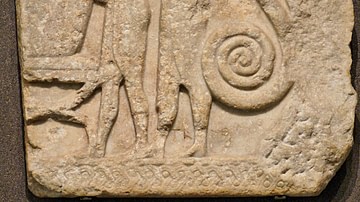
Definition
Agamemnon (Play)
The play Agamemnon was written by one of the greatest Greek tragedians Aeschylus (c. 525 – 455 BCE), “Father of Greek Tragedy.” Older than both Sophocles and Euripides, he was the most popular and influential of all tragedians of his era...

Definition
Libation Bearers
The play Libation Bearers was written by one of the greatest of all Greek tragedians Aeschylus (c. 525-455 BCE). Winning first prize at the Dionysia competition in 458 BCE, Libation Bearers was the second play in the trilogy The Oresteia...

Definition
Kievan Rus
Kievan Rus (862-1242) was a medieval political federation located in modern-day Belarus, Ukraine, and part of Russia (the latter named for the Rus, a Scandinavian people). The name Kievan Rus is a modern-day (19th century) designation but...

Definition
Rollo of Normandy
Rollo (l. c.860-c.930 CE, r. 911-927 CE) was a Viking chieftain who became the founder and first ruler of the region of Normandy. He converted to Christianity as part of a deal with the Frankish king Charles the Simple (893-923 CE) in 911...